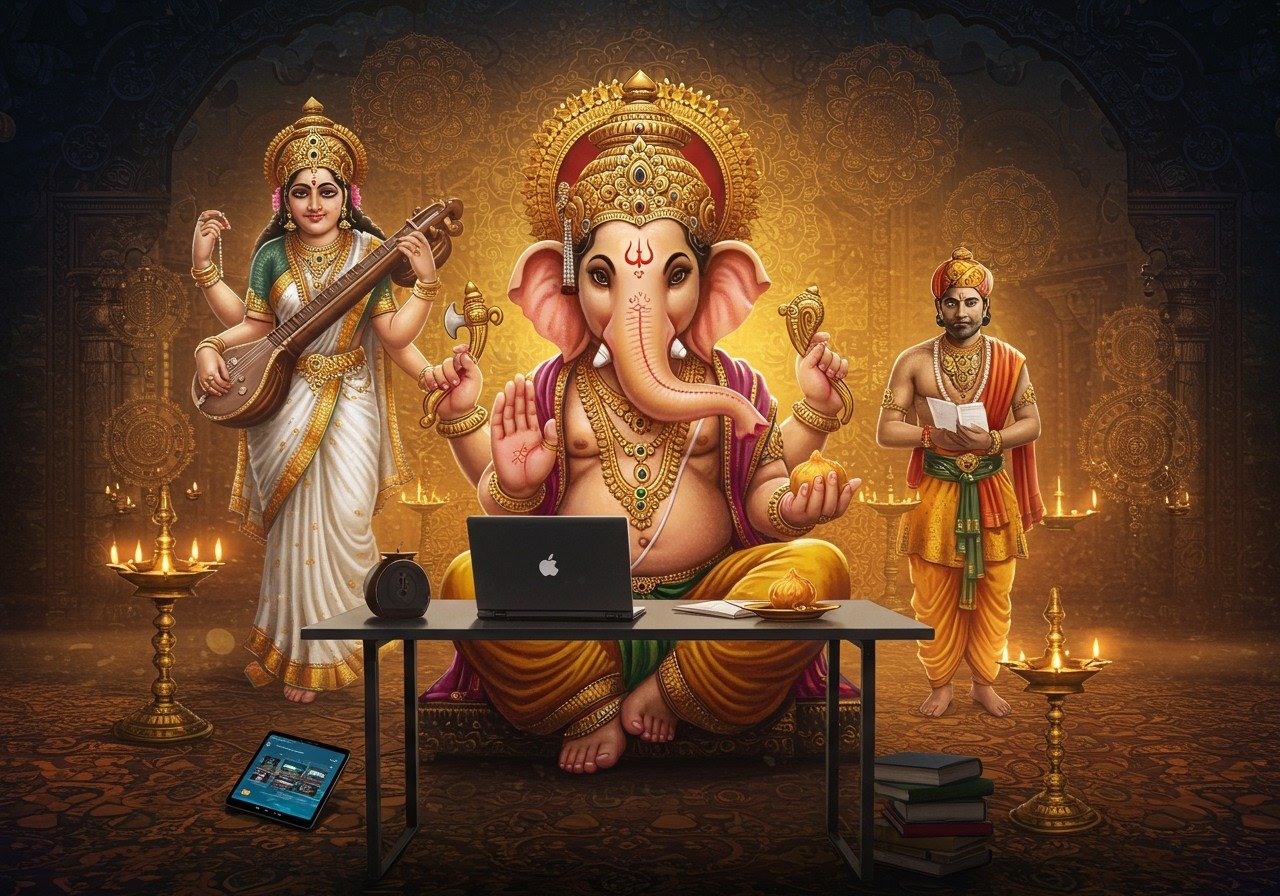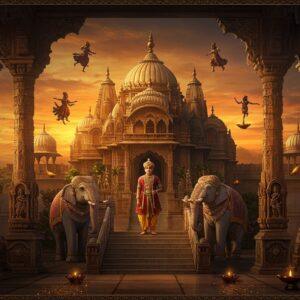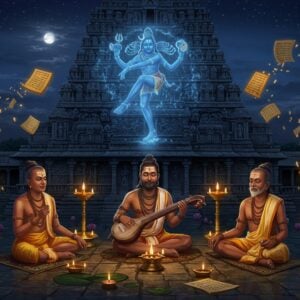Exploring the Divine: Hindu Deities and Their Significance in Everyday Life

In Hindu culture, deities hold a profound place in the hearts and homes of devotees. With a rich and diverse pantheon, each god and goddess embodies unique attributes that influence various aspects of life. Understanding the symbolism and narratives of these divine figures is essential for appreciating their role in festivals, rituals, and personal spirituality. By embracing these traditions, individuals can find guidance and inspiration for daily living.
Hindu Deities and Their Influence
Key Roles and Attributes
- Lord Ganesha: Known as the remover of obstacles and the god of beginnings, Lord Ganesha is invoked at the commencement of new ventures for blessings and success. He is also associated with wisdom and intellect.
- Goddess Saraswati: As the deity of knowledge, music, arts, and wisdom, Saraswati inspires learning, creativity, and the pursuit of knowledge. She is often depicted with a veena (a stringed instrument) and a book.
- Lord Vishnu: The preserver and protector of the universe, Vishnu is believed to incarnate in various forms (avatars) like Krishna and Rama to uphold dharma (righteousness) and restore balance to the world. Learn more about divine avatars.
- Goddess Durga: A fierce and powerful warrior goddess, Durga symbolizes strength, courage, and protection. She is revered for her ability to conquer evil and overcome adversity. Explore Goddess Lakshmi beyond wealth and prosperity.
- Lord Shiva: Revered for his dual role as the destroyer and transformer, Shiva represents asceticism, meditation, and the cyclical nature of time. He is also associated with creation and preservation.
These deities, among many others, are revered for their unique roles, offering guidance and support in various facets of life. They represent different aspects of the divine and provide a framework for understanding the complexities of the universe and human existence.
Hindu Deities in Daily Life: A Deeper Connection
Guidance and Inspiration
Hindu gods and goddesses serve as personal guides and sources of inspiration. Devotees turn to them for comfort and protection during times of joy, sorrow, and challenges. Beginning the day with a prayer to a chosen deity can instill hope and positivity.
Moral and Ethical Values
Stories of deities, like Rama and Krishna, impart moral and ethical lessons, teaching values such as honesty, integrity, compassion, and selflessness. These narratives inspire individuals to make virtuous choices and strive to lead a righteous life. They serve as a moral compass, guiding individuals through life’s complexities. Explore the power and purpose of mantras.
Worship and Rituals
Daily rituals, temple visits, and home worship are integral to Hindu practices. These acts of devotion, such as lighting a diya (lamp) or offering flowers, create a connection with the divine, offering moments of peace and reflection. Learn about temple etiquette.
Cultural Identity
Hindu deities are deeply intertwined with cultural identity. Their presence is evident in art, music, literature, dance, and festivals. Celebrations like Diwali honor their stories and teachings, fostering a sense of community and belonging. Explore Ganesh Chaturthi.
Karma
The concept of karma, the principle of cause and effect, significantly influences Hindu beliefs and actions. It emphasizes the importance of ethical conduct, as actions have consequences, shaping one’s present and future.
Vegetarianism and Non-violence
The principle of Ahimsa (non-violence) guides many Hindus towards vegetarianism and compassionate treatment of all living beings. This practice reflects a deep respect for life and aligns with spiritual values.
Yoga and Meditation
Yoga and meditation, practices rooted in Hindu spirituality, promote physical and mental well-being. They cultivate inner peace, calmness, and self-awareness, fostering a deeper connection with the divine.
Festivals
Hindu festivals, such as Diwali, celebrate the triumph of good over evil, light over darkness, and knowledge over ignorance. These joyous occasions bring communities together, reinforcing cultural values and traditions. Learn more about Hindu fasting.
Poojn.in: Your Gateway to Divine Connection
Poojn.in simplifies the practice of daily devotion by offering a wide selection of authentic puja (worship) items and supplies. We provide a comprehensive range of products, including:
- Murtis (Idols): Exquisitely crafted murtis of various Hindu deities in pure brass, copper, and other sacred materials. Explore our Laddu Gopal Murtis.
- Puja Thalis: Beautifully designed thalis (plates) specifically crafted for different deities and rituals, containing all the essential items for worship.
- Incense and Dhoop: A variety of incense sticks and dhoop (resin incense) to create a sacred atmosphere during puja. Discover our Sandalwood Incense.
- Sacred Items: Rudraksha malas (prayer beads), shankhas (conch shells), and other sacred items for personal use and rituals.
- Puja Kits: Specialized puja kits for various deities and occasions, containing all the necessary items for a complete and authentic worship experience. Create your sacred home space.
Poojn.in is committed to providing high-quality, authentic products, ensuring a fulfilling and meaningful spiritual experience. Visit www.poojn.in to explore our complete collection and enrich your daily spiritual practice.
Embracing the Divine Presence: Living with Wisdom and Peace
Hindu deities enrich lives with wisdom, guidance, and a sense of peace. By integrating their teachings and stories into daily life, individuals can navigate challenges with courage and find inspiration in every moment. Whether through ancient narratives of bravery and honesty or rituals that connect us to the divine, these deities provide a profound link to cultural heritage and spiritual growth. They inspire a life lived with kindness, respect, awareness, and a deep appreciation for the interconnectedness of all beings.
Frequently Asked Questions about Hindu Deities
Which deity is associated with each day of the week? Each day of the week is dedicated to a particular deity. For instance, Monday is dedicated to Lord Shiva, Tuesday to Lord Hanuman and Mars, Wednesday to Lord Krishna and Mercury, Thursday to Lord Vishnu and Jupiter, Friday to Goddess Lakshmi and Venus, Saturday to Lord Shani (Saturn), and Sunday to Lord Surya (Sun). Each day holds unique significance, often observed with specific rituals and prayers.
What roles do Hindu deities play in daily life? Hindu deities offer guidance, protection, and blessings in various aspects of life, influencing decisions, actions, and perspectives. For example, Goddess Saraswati is invoked for wisdom and learning, while Lord Ganesha is revered for removing obstacles and ensuring success in endeavors.
Why do Hindus worship multiple deities? The worship of multiple deities reflects the diverse nature of the divine and allows devotees to connect with different aspects of the supreme being. Each deity embodies unique qualities and powers, providing a rich tapestry of spiritual expression. Explore a complete guide to Hindu Gods and Goddesses.
What are the powers of Hindu deities? Hindu deities possess a wide range of powers, reflecting their roles in the cosmic order. Lord Vishnu is known for preserving the universe, while Goddess Durga is celebrated for her protective power and ability to vanquish evil.
How do Hindu deities influence daily rituals? Deities influence daily rituals, such as puja, fasting, and prayer, shaping the practices and intentions behind them. These rituals are a means of connecting with the divine, seeking blessings, and expressing gratitude.
What is the significance of offering prayers? Offering prayers is an act of devotion, gratitude, and seeking divine guidance. It strengthens the connection with the divine and offers solace, strength, and hope during challenging times. Unveil the profound significance of Aarti.
Can anyone worship Hindu deities? Devotion transcends religious and cultural boundaries. Anyone can worship Hindu deities, seeking blessings and guidance from the divine figures that resonate with them personally.


